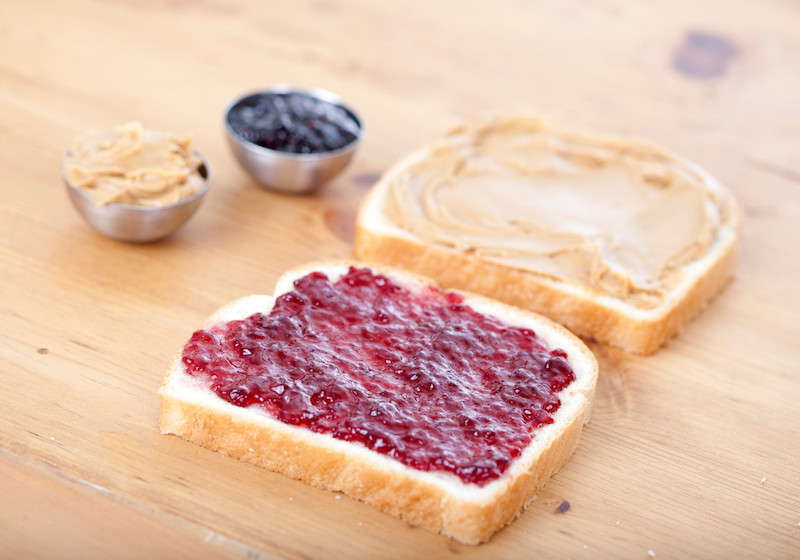Promote Better Cognition and Independence
 Submitted by Britt Lueken, MSW, LMSW
Submitted by Britt Lueken, MSW, LMSW
Co-Founder
Memory Keepers
Supporting individuals with dementia: how to promote better cognition and independence.
When a person has early-stage dementia, they often withdraw and avoid initiating activities. This happens for several reasons.
Dementia causes changes in memory, thinking, reasoning and judgment. Executive Function, or the ability to plan and do different tasks, is also affected. A person’s ability is also affected by which stage of dementia they are in.
For example, a person with mild cognitive impairment, an early stage of memory loss, can likely still do tasks independently without much difficulty. As the disease progresses, more help will naturally be needed. That said, promoting independence and allowing them to do as much as they are able to will be greatly beneficial!
As dementia progresses, the ability to think through the different steps of a task is affected. You may notice this gradual loss of ability if you are caring for someone with dementia.

Peanut Butter and Jelly: Easy, Right?
Take, for example, the “simple” task of making a peanut butter and jelly sandwich. We first need to gather all of the resources needed to complete the task including bread, peanut butter, jelly, a plate, and a knife.
We then need to assemble the ingredients in the correct order:
- Get out the ingredients and utensils
- Lay out the bread
- Spread the jelly on one side of a piece of bread
- Spread the peanut butter on the other slice of bread
- Place the two pieces together, jelly and peanut butter sides together
- Put the sandwich on a plate or cutting board
- Cut the sandwich
- Put it on a plate to serve
- Put the bread, jelly and peanut butter away
- Put the dishes in the sink or dishwasher
Breaking a task down into its most basic parts illustrates how “complex” a simple everyday task could potentially be for someone with cognitive decline or short-term memory loss. We learn to make food by watching others, by reading a recipe, or by trial and error, using Executive Function.
In this case, we learn that the peanut butter and the jelly all need to go on the inside of the two pieces of bread. We learn that the sandwich is easier to hold if we cut it in half. We may even develop a preference for cutting the sandwich either diagonally or vertically.
Providing Help – Carefully
Because dementia affects the ability to perform activities, we need to support those living with dementia to help them successfully complete some tasks. That might mean getting the materials out for them and putting them within their eyesight. or, modeling/demonstrating each step of the activity.
They may get stuck at one step and not know where to go next. Sometimes just helping with that single step is enough to get them going again, and they can complete the rest on their own.
Be patient, slow your pace, observe what is needed, and step in only when necessary and not in order to hurry them along or because they appear to not do it as well as they used to.
Note: Safety must always be considered when supporting a person with dementia in engaging in activities.
For instance, when preparing lunch, some oversight might be necessary. If the person can no longer safely use a sharp knife, substitute a butter knife, or offer to cut the sandwich for them. Check to make sure the ingredients are fresh and not molded or past their expiration date. Check for possible food allergies.
Promote Meaningful Activities

Meaningful activities are those that allow us to express ourselves, connect with others, to feel a sense of freedom and purpose, and have fun. Engaging in meaningful activities can help reduce boredom, agitation, depression, and wandering for a person with memory loss.
When choosing an activity, think about what the person with memory loss is particularly interested in.
Did they enjoy cooking?
Something like helping to make lunch is meaningful because we are taking care of ourselves and others by doing this. If they cooked in the past, this is a familiar activity that is dependent on procedural memory, a type of memory that is usually still intact in someone with mild/moderate dementia.
They may struggle to prepare dinner for the family but can still help with meal preparation.
Did they enjoy gardening but no longer can work in the garden by themselves?
Get flowers, either from the yard or store and set them up with a vase, water and scissors for creating a flower arrangement. Or provide plants inside such as herbs for them to care for.
A reminder to water them may be needed. Put a small watering can next to the plants as a cue. Maybe all that is needed is to say “I noticed the plants are getting dry, do you want to go over and check on them and see what you can do?”
Provide the minimal assistance needed for them to accomplish the task, allowing the person with dementia to maintain as much independence as possible.

Setting You Up For Success
Activities that create stress or discomfort should be avoided or adapted to promote success.
The goal of the activity should be to create a positive experience rather than focusing on the end result.
If the person with memory loss appears frustrated, bored or irritable, take a break or introduce another activity.
It isn’t important to fill every moment of the day with activity. Both engagement and downtime are important. “Listen” to the person, not just by what they say but through observation:
- What are they experiencing right now?
- Is there too much stimulation, or not enough?
- Are they tired, hungry, or thirsty?
- Are they confused or anxious and need reassurance that they are safe and with people who care for them?
Observation is key to knowing the limits and what is needed in each moment. Be creative and flexible in finding and adapting activities in order to keep the individual engaged.
Keep in mind that doing the task gives the person a sense of responsibility and purpose and gives them the satisfaction of accomplishing the task. The look or quality of the end result is not important, it is the process that matters.
Take making a sandwich for lunch–if only one piece of bread is used instead of two, or if the jelly ends up on the outside of the sandwich, that’s OK! Praise the effort and give the person with dementia an opportunity to feel a sense of accomplishment.
A Free Guide for You
Memory Keepers offers a free guide full of meaningful activities you can download and do at home. For more information on ways to support those living with memory loss, go to www.memorykeepers.org or email us at info@memorykeepers.org.
 Britt Lueken, MSW, LMSW
Britt Lueken, MSW, LMSW
Memory Keepers
Britt is a licensed social worker, former Montessori teacher, executive non-profit leader and entrepreneur.
Her passion for working with older adults started when she began taking care of her grandmother, who had Alzheimer’s.

 Submitted by Britt Lueken, MSW, LMSW
Submitted by Britt Lueken, MSW, LMSW